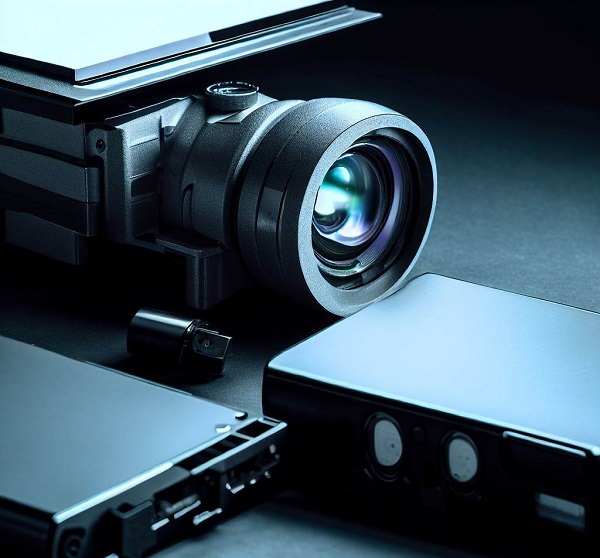Projectors are electronic devices that display images or videos on a large screen or surface. They work by projecting light through a lens onto a display surface, allowing for clear and enlarged visuals. Projectors have gained popularity due to their ability to deliver immersive viewing experiences and facilitate effective presentations.
Do Projectors Have Lithium Batteries?
Yes, many projectors are equipped with lithium batteries. Lithium batteries have gained popularity due to their numerous advantages over traditional battery technologies. These batteries are lightweight, and compact, and offer a higher energy density, providing longer battery life and enhanced portability for projectors.
Understanding Projector Power Sources
To function properly, projectors require a reliable power source. The most common power sources for projectors include direct current (DC) power supply, alternating current (AC) power supply, and batteries. While AC power is the primary power source for projectors in many scenarios, batteries serve as a crucial backup option, allowing for increased mobility and usage in environments without easy access to electrical outlets.
Benefits of Lithium Batteries in Projectors
- Longer battery life: Lithium batteries have a higher energy density than conventional batteries, allowing projectors to operate for extended periods on a single charge. This is particularly beneficial for outdoor events, camping trips, or situations where a power source is not readily available.
- Enhanced portability: The compact size and lightweight nature of lithium batteries make projectors more portable. Whether you need to carry a projector for business presentations or entertainment purposes, lithium batteries ensure convenient usage without the need for constant access to electrical outlets.
- Reduced maintenance requirements: Lithium batteries have a lower self-discharge rate compared to other battery types. This means that even if the projector is not used for an extended period, the battery will retain its charge, eliminating the need for frequent recharging or battery replacement.
Other Power Options for Projectors
While lithium batteries offer several advantages, it’s important to note that not all projectors exclusively rely on them as their power source. Here are some other power options commonly found in projectors:
- AC power: Many projectors are designed to be plugged directly into an electrical outlet using an AC power adapter. This allows for a continuous power supply without the need to rely on batteries.
- Rechargeable batteries: Apart from lithium batteries, some projectors utilize rechargeable batteries of different chemistries, such as nickel-metal hydride (NiMH) or lithium-ion (Li-ion). These batteries can be recharged using an external power source.
- Power banks and external power sources: Some projectors are designed to be compatible with power banks or external power sources. This gives users the flexibility to power their projectors using portable chargers or other power devices, providing extended usage time without the need for direct AC power.
Factors to Consider When Choosing a Projector
When selecting a projector, it’s essential to consider the power source options available and match them to your specific requirements. Here are a few factors to keep in mind:
- Battery type and capacity: If you prioritize portability and battery-powered operation, opt for a projector with a reliable battery type, such as lithium-ion. Additionally, consider the battery capacity to ensure it meets your usage needs.
- Expected usage scenarios: Determine where and how you plan to use the projector. If you frequently work or present in locations without AC power, a projector with a robust battery system becomes crucial.
- Power backup options: Evaluate whether the projector provides alternative power options, such as the ability to connect to an external power source or compatibility with power banks. This can ensure uninterrupted usage, even in situations where the internal battery is depleted.
Tips for Maximizing Battery Life in Projectors
To make the most of your projector’s battery life, consider the following tips:
- Adjusting brightness and display settings: Lowering the brightness and adjusting other display settings can significantly extend the battery life of your projector. Find a balance between optimal image quality and energy efficiency.
- Proper storage and maintenance: Store your projector in a cool and dry environment when not in use. Avoid exposing it to extreme temperatures, as this can degrade the battery performance over time. Regularly clean the projector’s air vents to prevent overheating, which can impact battery life.
- Optimal usage patterns: Efficiently plan your projector usage to maximize battery life. For example, avoid leaving the projector running idle for extended periods and powering it off when not needed. Additionally, consider using power-saving modes if available.
Conclusion
In conclusion, projectors do have lithium batteries, and their integration has significantly improved the functionality and versatility of these devices. Whether you’re using a projector for professional or personal use, the presence of lithium batteries ensures that you can enjoy high-quality visuals and seamless presentations even in locations without direct AC power access.
FAQs
Can projectors run solely on battery power?
Projectors equipped with reliable lithium batteries can operate solely on battery power, allowing for portable and cordless usage. However, the battery life and capacity may vary depending on the specific projector model.
How long do lithium batteries typically last in projectors?
The battery life of projectors with lithium batteries can vary based on factors such as usage patterns, brightness settings, and battery capacity. On average, lithium batteries in projectors can provide several hours of continuous usage before requiring a recharge.
Can I replace the battery in a projector myself?
The ability to replace the battery in a projector largely depends on the specific model and its design. Some projectors have user-replaceable batteries, while others may require professional servicing. It is recommended to consult the manufacturer’s guidelines or seek assistance from a qualified technician.
Are there any safety concerns with lithium batteries in projectors?
Lithium batteries are generally safe when used correctly. However, it’s important to follow proper handling and storage procedures to minimize any risks. Avoid exposing the battery to extreme temperatures, puncturing or damaging it, and use the recommended charger provided by the manufacturer.
Can projectors be charged while in use?
Depending on the model and power options available, some projectors can be charged while in use. This feature allows for uninterrupted operation even during extended presentations or events. However, it’s advisable to check the specifications and user manual of your specific projector to determine if it supports charging while in use.










